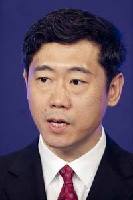Economy
Lower income tax to counter earnings gap
By Gao Yuan (China Daily)
Updated: 2011-05-04 13:23
 |
Large Medium Small |
 |
|
Li Daokui,?senior adviser to the People's Bank of China.? |
Li suggested that the government should sharply reduce the personal income tax rate and tax brackets to reduce the tax burden on the public.
He gave the example of developing economies, such as Singapore, that adopted a tax system with smaller leaps between brackets and low rates. "The highest rate in those economies is about 15 percent, which encourages the public to pay the tax voluntarily and reduces the cost of the levy," he said.
| ||||
Li also argued that the current personal income tax law has many flaws.
According to Li, the biggest problem is that the income tax burden focuses on wage earners while many people who benefit from hefty capital gains are exempted from paying income tax.
In China, capital gains from the stock market, for example, are not subject to personal income tax. The income gap is mainly attributable to capital gains and other non-salary incomes, consequently the current tax system discourages wage earners, Li said.
He suggested that policymakers take this into consideration as they draft reforms and that a comprehensive personal income tax system should be set up covering all sources of income, wages and capital gains, instead of focusing on raising the minimum taxable threshold.
The nation's top legislature plans to raise the minimum threshold for personal income tax from 2,000 yuan to 3,000 yuan. The Standing Committee of the National People's Congress published a draft amendment to the personal income tax law on its website in late April, calling for public feedback.
Top Ministry of Finance officials estimated that the higher threshold proposed in the draft will eliminate 99 billion yuan in tax revenue and reduce the number of taxpayers by 48 million, or 12 percent of the tax base, Xinhua reported on April 20.
| 分享按鈕 |



